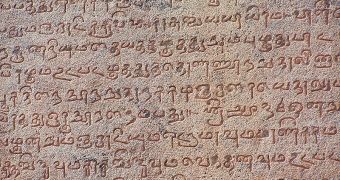The world's languages are extremely varied and diverse, yet they must all share some common grounds, linguists reason. Based on this assumption, researchers at the University of Cambridge are now embarking on a new research to understand how languages are built.
Their work will cover everything from Navajo to Japanese, as well as from languages spoken by the Inuits to those still in use in sub-Saharan Africa. Scientists with the research team expect the project to complete within the next 5 years or so.
Experts are especially fascinated by the fact that children can learn an entire language by the time they turn 3. At this age, they are already fluid in their mother tongue. If that is the case, then how come adults have such a tough time learning a second language.
The difference between children and adults in this regard are simply astounding, and investigators are very curious to learn whether language itself has any hand in underlying this phenomenon. Cambridge professor Ian Roberts will lead the investigation.
He argues that something in the way languages are built is responsible for triggering a child's innate ability to learn a particular mother tongue. Identifying this hidden factor is the main purpose of the current investigation.
Some time ago, experts such as Noam Chomsky proposed that children are born with an innate set of linguistic principles – called the universal grammar – which enables them to be primed for learning any language spoken on the planet.
In other words, humans may be born with the ability to understand all specifics and characteristics of any particular language they may be exposed to as children. What this implies is that the language the child will ultimately speak as their mother tongue is the one they will be exposed to in the family.
“If you talk about a universal grammar then you might naturally think there is a universal language, when of course there isn’t. Rather, there are thousands of different languages,” Roberts argues.
“The central notion is that the specification that the child has in the genome, the universal grammar, must be of the most abstract, general, structural properties of language and that different languages manifest these properties in slightly different ways,” he adds.
“The empirical question then is to work out what it is about a language that guides the child’s innate ability to acquire it. In other words, to understand how Chomsky’s theory could work, we need to work out how languages are built,” the expert concludes.

 14 DAY TRIAL //
14 DAY TRIAL //